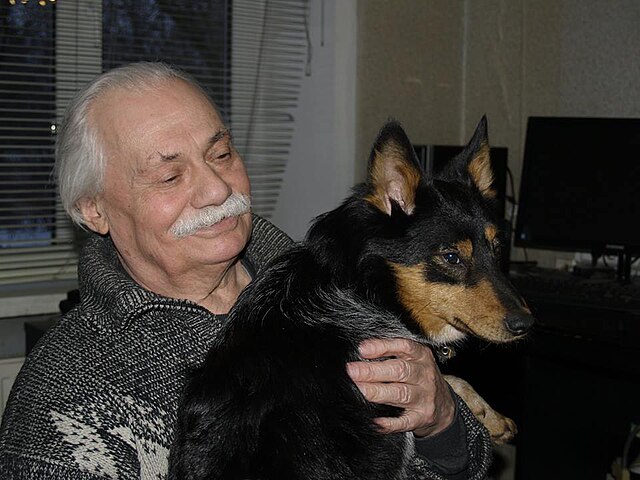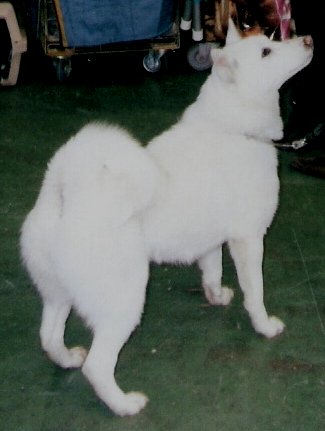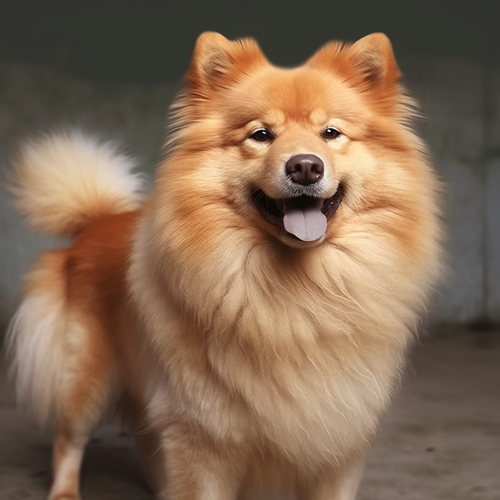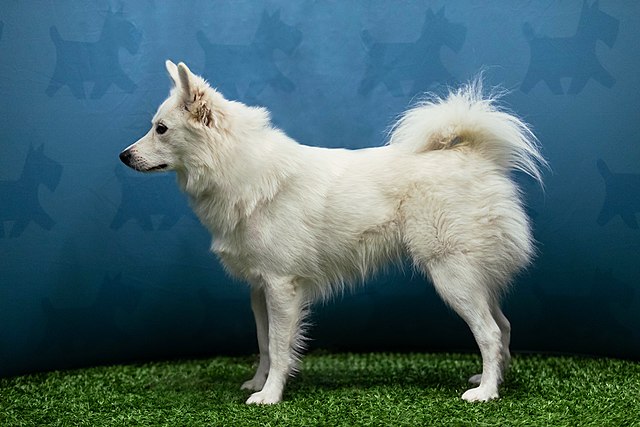The Hokkaido is the last of the six Japanese hunting spitz breeds that we have profiled, and it is also the oldest. This ancestors of this ancient breed have been recorded as early as the year 300 AD! The Hokkaido is loyal to his owner and makes an excellent companion, as well as an intelligent and brave hunting dog. Although only medium-sized, he was used for hunting large game such as deer and even bear! In Japan, he was declared a living monument in 1937.
The Hokkaido was developed to live and work in very cold weather and has no problem with snow or low temperatures. He has an extraordinary stamina with a great working ability and especially enjoys pleasing his owner. If given the choice, he would prefer to be involved with the activities of “his humans”, particularly if those activities involve physical exercise. Because of his “velcro” tendencies and fondness for being around people, the breed is also unfortunately prone to separation anxiety when left alone.
Hokkaido are particularly good at solving puzzles and problems, and need to be trained from an early age to channel their thinking power into useful tasks lest they become troublesome mischief makers. Providing them with appropriate things to chew on will help exercise not only their jaws but their minds as well. Check out the Benebone for a good chew option – https://amzn.to/410F5TG In addition, obedience training and early socialization are a must! Trainers must be adept at reading dogs and being able to tailor a training plan for each individual – the Hokkaido can be stubborn and highly independent. They are capable of reaching high levels of obedience, even doing well at the off-leash level but can be difficult for a novice.
The ever-alert Hokkaido, because of his hunting nature, might try to chase or go after smaller pets. He also tends to be same-sex aggressive with other dogs, particularly intact males. Finally, this breed can be aloof with strangers and potentially overly protective of his family if not extensively socialized. It is for these reasons that he will not fit into just any family, and isn’t especially recommended for the novice owner.
Hokkaido are an active breed and need plenty of daily exercise to keep them physically and mentally happy. This is a breed that needs a job to do in order to stay fulfilled, as well. As they are quite versatile, there are many types of jobs they can be given – anything from agility, trick dog tasks, hunting, rally, weight pull, dock diving, flyball, lure coursing to regular obedience worked into their everyday lives. They can be a rough-and-tumble breed that aren’t afraid to get dirty in their active endeavors!
The Hokkaido doesn’t tend to have a strong doggy odor, even when bathed infrequently. The harsh, double coat is designed to repel the elements (including dirt to an extent), thanks to the natural oils in their skin. They do need regular brushing to get dead undercoat out of the body but they do not require any special clipping. Never shave a Hokkaido! Doing so will ruin the coat and make them more likely to get overheated because the double coat acts as insulation to both heat and cold! Make sure to trim nails regularly. All colors of the Hokkaido (white, brindle, red, black/tan, and sesame) will shed heavily a couple times a year. This will only last a few weeks and otherwise the shedding is somewhat minimal.
Hokkaido are careful-footed around the house and not prone to accidentally breaking objects in their wake. They are, however, somewhat loud and love to hear themselves talk, howl and grumble about all sorts of things. They will try to carry on conversations with you, either to protest an injustice or just to welcome you home… for an extended period of time. They also are prone to escape-artist antics, digging in the yard, inappropriate chewing and/or eating things that shouldn’t be eaten (known as pica). Be forewarned! Some of these bad habits can be trained away, while others may be harder to break. Pica, in particular, is known to be genetic. Some Hokkaido are also slow to housebreak. Be prepared for all of this before bringing a puppy home, if interested in this breed! Despite their setbacks, in the right home they are loyal albeit independent companions that have already earned a devoted following in Japan.
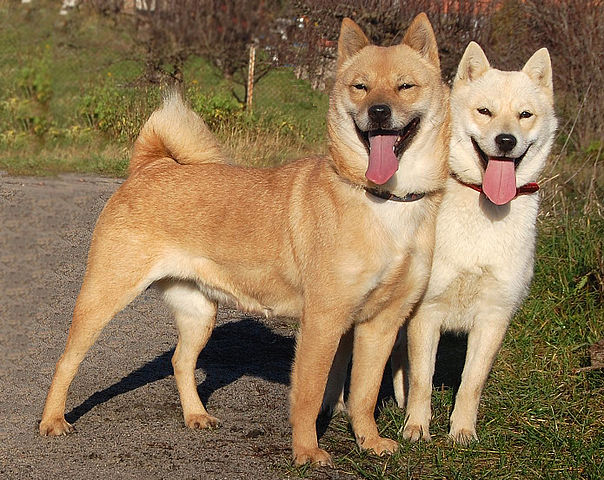
Affiliate Disclaimer
As an Amazon Associate, I earn from qualifying purchases. This means that if you click on an affiliate link on this site and make a purchase, I may earn a small commission at no additional cost to you. Rest assured that I only link to products I have used, or use on a regular basis, and trust enough to recommend them to you!
